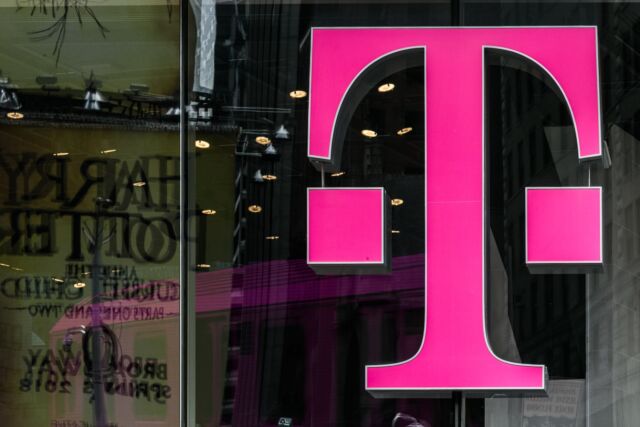FCC gets 1,600 complaints; users blast “deceptive advertising aimed at seniors.”

In 2017, Kathleen Odean thought she had found the last cell phone plan she would ever need. T-Mobile was offering a mobile service for people age 55 and over, with an “Un-contract” guarantee that it would never raise prices.
“I thought, wow, I can live out my days with this fixed plan,” Odean, a Rhode Island resident who is now 70 years old, told Ars last week. Odean and her husband switched from Verizon to get the T-Mobile deal, which cost $60 a month for two lines.
By signing up, you agree to our user agreement (including the class action waiver and arbitration provisions), our privacy policy and cookie statement, and to receive marketing and account-related emails from Ars Technica. You can unsubscribe at any time.
Despite its Un-contract promise, T-Mobile in May 2024 announced a price hike for customers like Odean who thought they had a lifetime price guarantee on plans such as T-Mobile One, Magenta, and Simple Choice. The $5-per-line price hike will raise her and her husband’s monthly bill from $60 to $70, Odean said.
As we’ve reported, T-Mobile’s January 2017 announcement of its “Un-contract” for T-Mobile One plans said that “T-Mobile One customers keep their price until THEY decide to change it. T-Mobile will never change the price you pay for your T-Mobile One plan. When you sign up for T-Mobile One, only YOU have the power to change the price you pay.”
T-Mobile contradicted that clear promise on a separate FAQ page, which said the only real guarantee was that T-Mobile would pay your final month’s bill if the company raised the price and you decided to cancel. Customers like Odean bitterly point to the press release that made the price guarantee without including the major caveat that essentially nullifies the promise.
ARS VIDEO
What Happens to the Developers When AI Can Code? | Ars Frontiers
“I gotta tell you, it really annoys me”
T-Mobile’s 2017 press release even blasted other carriers for allegedly being dishonest, saying that “customers are subjected to a steady barrage of ads for wireless deals—only to face bill shock and wonder what the hell happened when their Verizon or AT&T bill arrives.”
T-Mobile made the promise under the brash leadership of CEO John Legere, who called the company the “Un-carrier” and frequently insulted its larger rivals while pledging that T-Mobile would treat customers more fairly. Legere left T-Mobile in 2020 after the company completed a merger with Sprint in a deal that made T-Mobile one of three major nationwide carriers alongside AT&T and Verizon.

After being notified of the price hike, Odean filed complaints with the Federal Communications Commission and the Rhode Island attorney general’s office. “I can afford it, but I gotta tell you, it really annoys me because the promise was so absolutely clear… It’s right there in writing: ‘T-Mobile will never change the price you pay for your T-Mobile One plan.’ It couldn’t be more clear,” she said.
Now, T-Mobile is “acting like, ‘Oh, well, we gave ourselves a way out,'” Odean said. But the caveat that lets T-Mobile raise prices whenever it wants, “as far as I can tell, was never mentioned to the customers… I don’t care what they say in the FAQ,” she said.
1,600 complaints to FCC
The FCC told Ars on Monday that the agency received about 1,600 consumer complaints about the T-Mobile price hikes. Following agency policy, the FCC declined to say if it is investigating the price increases.
The Federal Trade Commission declined to say how many complaints it has received. We filed Freedom of Information Act requests with both federal agencies this week to obtain more information.
We asked T-Mobile if it plans to make any changes in response to the complaints, but the company did not provide an answer. Ars was also contacted by two other customers who, like Odean, filed complaints. One of those customers told us that he couldn’t even get T-Mobile to honor the promise that it would cover the final bill if a user decided to leave after a price hike.
Georgia resident Michael Moody switched his business and family accounts from T-Mobile to Verizon upon learning of the price hikes and said he called T-Mobile multiple times in an attempt to get the two accounts’ final bills covered.
“The first representative I got said they knew nothing about this promise that T-Mobile had agreed to and that the charges were valid and that they would not be reversing any of the charges,” Moody told Ars. “Whenever I asked to speak to a supervisor or a manager, they just kept telling me that their supervisor would tell me the same thing and refused to connect the call to anybody else.”
Moody said he and his family now pay Verizon about the same amount that T-Mobile planned to charge after the price hikes. “We’re not saving money by switching, but at least I’m not dealing with a company that’s lying straight to my face anymore,” he said.
Moody said he filed complaints with the FCC, FTC, and Better Business Bureau.
Un-contract and Price Lock
T-Mobile’s 2017 FAQ described the Un-contract as “our commitment that only you can change what you pay and we mean it! To show just how serious we are, we have committed to pay your final month’s recurring service charges if we were to raise prices and you choose to leave. Just let us know within 60 days.” T-Mobile discontinued the Un-contract in 2022 but makes the same pledge about currently offered plans with “Price Lock,” which has a different name but operates similarly to the Un-contract.
Moody has been trying to get T-Mobile to cover a final-month bill of $153.22 for a business account and a final-month bill of $186.81 for a family account. The accounts have multiple voice lines and other connected devices like a tablet and smartwatch. Like other customers, Moody was notified by T-Mobile via text message in late May about the impending price hikes.
“For the first time in nearly a decade, we’re changing the price of some of our plans,” a text message about the business-plan price change said. “Starting on your June or July bill, your voice plan will increase by $5/line per mo. and your other connected devices by $2/ line per mo. You’ll remain on the same plan with the same benefits and bill due date.” Moody received a similar message about the family plan.
Moody said that T-Mobile made the price guarantee for both the business and family accounts. “That is how it was marketed to me by the business account representative I used to have,” he said.
We asked T-Mobile for information on why Moody hasn’t been able to get the final bills covered. A T-Mobile spokesperson told us, “Customers with Un-contract and Price Lock on eligible plans are still covered by those benefits. We don’t share information about customer accounts with others, so I don’t have details to give you.”
T-Mobile told us on Tuesday that it would get in touch with Moody directly. On Wednesday, a T-Mobile rep sent him an email alleging that he did not notify T-Mobile quickly enough to get the final bill covered.
“Upon review, with Un-contract, T-Mobile committed to its customers that if it were to increase prices and customers chose to leave as a result, T-Mobile would pay the customers’ final month’s recurring service charges, as long as customers notified T-Mobile within 60 days. Unfortunately, it was noted that notification of cancellation from your end came after the cancellation had already been processed, which does not meet the terms and conditions set forth for the Un-contract promise,” T-Mobile wrote in an email that Moody shared with Ars.
“Deceptive advertising aimed at seniors”

Ars also heard from John Schlatter in South Carolina, who filed complaints against T-Mobile with the FCC and FTC. “My complaints basically stated that T-Mobile advertised a rate that would never go up, and I believed they engaged in deceptive advertising,” he told Ars.
Schlatter said that he and his wife are in their early seventies and signed up for the 55-and-over plan in 2017 for $30 per line. “At that time, the plan was being heavily advertised to seniors with the statement that your monthly bill will never go up,” he said.
Schlatter hopes the FTC will pursue a case against T-Mobile for deceptive advertising based on the 2017 press release that promised rates would never be raised. “There are two issues here: the rate increase itself, and the way in which the plan was advertised in 2017. I’m pretty sure T-Mobile’s lawyers can cover their butt on the rate increase with carefully worded fine print, but to me it’s clear they engaged in deceptive advertising aimed at seniors,” Schlatter said. (T-Mobile also offered the price guarantee on plans available to customers of any age.)
Schlatter told Ars that “in my working career, I wrote news releases for a major corporation. The company lawyers always carefully reviewed the draft releases before they went out. I’m surprised T-Mobile’s lawyers let that January 2017 release go out as worded.”
Schlatter said he’s been happy with T-Mobile service in the previous seven years, “and changing carriers would be a real hassle, so I’ll stick with them. But this episode certainly leaves a bad taste in my mouth.”
T-Mobile has responded to FCC complaints with a letter explaining the limits of the price guarantee. “With Un-contract, T-Mobile committed to its customers that if we were to increase prices and customers chose to leave as a result, T-Mobile would pay the customers’ final month’s recurring service charge, as long as we are notified within 60 days… Customers simply need to request reimbursement within 60 days of the price increase,” the letter said.
T-Mobile’s letter does not explain why that caveat wasn’t mentioned in the 2017 press release but nonetheless requests that the FCC close each consumer complaint about the price increase.
Consumers urge FCC to intervene
After getting T-Mobile’s letter, Odean wrote to the FCC again to point out that there was “nothing about potentially increasing prices in their 2017 material describing the plan. The material says the price will never increase.”
“Please do not let this company blatantly renege on its promise to senior citizens who subscribed to their 55+ One plan as I did,” Odean wrote to the FCC.
Schlatter made the same point to the FCC when he replied to T-Mobile’s letter. T-Mobile’s response to the complaint “does not address the deceptive advertising contained in their news release dated January 5, 2017,” he wrote. As noted earlier in this article, the press release said that “T-Mobile will never change the price you pay for your T-Mobile One plan. When you sign up for T-Mobile One, only YOU have the power to change the price you pay.”
“No disclaimers of any type were attached to the press release,” Schlatter wrote to the FCC. “T-Mobile should be required to honor the pledge made in the press release.”
The advertising industry’s self-regulatory group this month determined that T-Mobile’s Price Lock claim was misleading, although the ruling wasn’t directly related to mobile service. As we reported, AT&T filed a challenge against T-Mobile over ads for 5G home Internet service that mentioned the Price Lock guarantee.
BBB National Programs’ National Advertising Division (NAD) agreed with AT&T, finding that T-Mobile’s Price Lock ads conveyed the misleading message “that the price is locked for monthly service as long as the consumer wants the service.” T-Mobile’s disclosure wasn’t good enough because “a disclosure cannot contradict the claim it qualifies,” the NAD said.
T-Mobile agreed to follow the NAD’s recommendations for future ads related to its home Internet service, but that doesn’t help mobile customers who are angry about the price increase.
“If there were a class-action suit, I would join”
While Odean said she and her husband can afford the $10-per-month increase, she pointed out that it would be difficult for people on fixed incomes. T-Mobile’s explanation that it has to raise prices to cover its own rising costs doesn’t sit well with her, either.
Odean said that one of the times she called T-Mobile to complain, “I talked to a very nice guy who said, ‘They’re not giving us any leeway here.’ And he said, ‘You know, I’m hearing from a lot of distressed people.’ First they give you the ‘Oh, my bill’s going up too,’ as if somehow that makes it OK. And then they give you the ‘Well, you know, prices have gone up.’ And I thought, well, they knew in 2017 that prices would go up, so that just seems like no argument at all to me. I mean, I knew prices would go up. That’s why I wanted this plan.”
Odean pointed to a T-Mobile earnings announcement that boasted net income of $2 billion in Q4 2023 and $8.3 billion in calendar year 2023, with “industry-leading growth of 221 percent.” T-Mobile also reported $63.2 billion in service revenue in 2023 with “industry-leading growth of 3 percent.”
“Certainly if there were a class-action suit, I would join… they’re trying to weasel their way out [of a promise], and this is a company that’s making a lot of money,” Odean said.
At least for now, Odean hasn’t changed carriers. “I don’t really want to plunge back into these carriers every couple of years and compare plans,” she said.
Moody said he and his family left AT&T for T-Mobile in 2016 and then switched to different T-Mobile plans in order to get the price lock in 2017. They had years of customer service problems with AT&T, and T-Mobile seemed to be “trying to operate business differently than the legacy carriers,” he said. Now Moody is on Verizon, having cycled through the three major carriers.
T-Mobile service “was good for years until they started having all these data breaches, and now my Social Security number’s all over the dark web, so that was the beginning of my frustration,” he said. “The straw that kind of broke the camel’s back was them breaking their agreement for the price-lock guarantee and saying that they were going to increase our rates anyway.”




